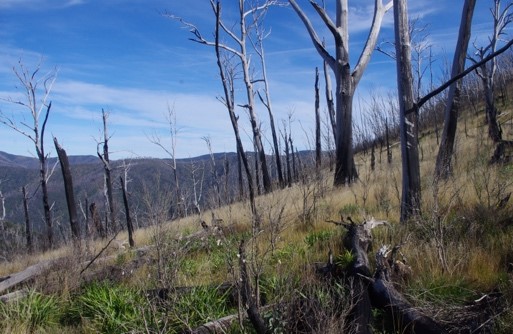Using genomic tools to improve environments
The goal is to identify seed sources that can improve establishment, persistence and adaptive potential of Alpine Ash to changing environments.

Super seed for adaptive potential
Genetic variation is the fuel that enables populations to adapt to their local environment. Therefore, identifying hidden sources of variation across the landscape is crucial for assisted migration programs to maximise species resilience to future environmental change. For non-model organisms, the biggest challenge has been identifying adaptive variation in the genome and subsequently across populations. Recent developments in landscape genomic tools such as Genotype Environment Associations (GEA) have been valuable in bridging this gap, but have rarely been validated in nature.
In this project, we are validating GEA approaches across a series of large common gardens in Eucalyptus delegatensis (Alpine Ash), a species threatened by climate change and increased fire frequency. By utilising genome wide markers and GEAs across different provenances, the goal is to see how well environmental offsets and genetic offsets predict survivorship and fitness or individuals growing from all provenances in a series of common gardens spread across a broad environmental gradient. The ultimate goal is to use genomic tools to identify seed sources that can improve establishment, persistence and adaptive potential in specific environments todays and in the future. In partnership with industry (Greening Australia), this information will assist with science based adaptive management models to deliver updated climate- and fire-ready guidelines in seed sourcing used in restoration programs.
Contact us to get involved in our research programs on Alpine Ash.
Funding: Greening Australia
Partners: Greening Australia, Melbourne University.
Contact: Associate Professor David Field, david.field@mq.edu.au